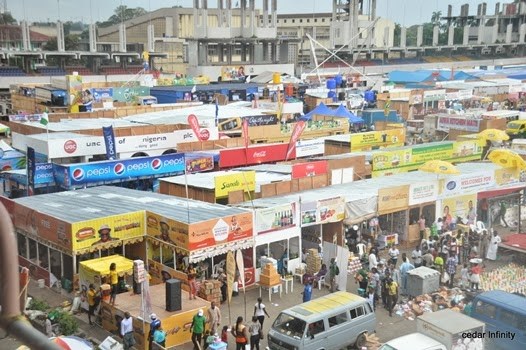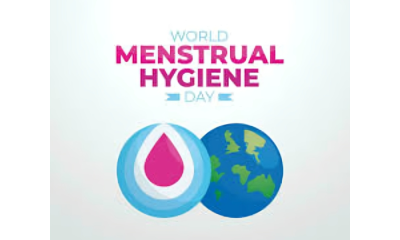Economy
ECOWAS Group, ICPC Urge African Leaders to Step up Fight Against Illicit Financial Flow

Mr Edwin Harris, the Director-General of the ECOWAS Inter-Governmental Action Group Against Money Laundering In West Africa (GIABA), Senegal, has urged African leaders to step up efforts in the fight againsr Illicit Financial Flows (IFF) in the region.
Harris made the call while delivering a lecture at the 11th anniversary annual lecture of Realnews and investiture into the Realnews Hall of Fame on Tuesday in Lagos.
The theme of the lecture is :” The Threats of Illicit Financial Flow to the African Economy”.
He stated that IFFs are a systemic problem requiring a systemic solution and as such, African leaders cannot afford to relax in the fight against a cankerworm that threatens their sustainable development.
The director-general noted that IFFs as money illegally earned, transferred or used in violation of laws in their origin, or during their movement or use, and are therefore considered illicit.
”IFFs from Africa typically originates from three sources, which are : corruption, including money acquired through bribery and abuse of office by public sector and private sector officials.
”Others are criminal activities, ranging from trafficking in people and drugs, arms smuggling, fraud in the financial sector, such as unauthorised or unsecured loans, money laundering, stock market manipulation and outright forgery,” he said.
Harris also mentioned commercial activities, arising from business-related activities, and having several purposes, including hiding wealth, evading or aggressively avoiding tax, and dodging customs duties and domestic levies.
The GIABA director-general said that the United Nations Economic Commission for Africa (UNECA) High Level Panel (HLP) on IFFs had stated that Africa is estimated to have lost one trilliondollars or more over the past 50 years to IFFs.
The commission, he said also revelealed that the continent is estimated to lose more than 50 billion annually in IFFs .
Harris stressed that this was corroborated by the Organisation for Economic Co-operation and Development (OECD) which estimated that Africa loses as much as $60 billion each year in IFFs.
He stated that in 2020, the UN Conference on Trade and Development (UNCTAD), in its report on Economic Development in Africa, estimated that Africa loses about US$88.6 billion, 3.7 per cent of its Gross Domestic Product (GDP), annually in IFF.
Harris said, at a regional level, the scale of criminal proceeds in the West Africa has been estimated at 3.6.per cent of global gross domestic product (GDP) .
“IFF are a global phenomenon and do not respect borders. They undermine global social, political and economic security and have become a serious threat to the attainment of development agenda, particularly in Africa.
“Africa’s efforts to ensure the reduction of IFFs must be pro-active, firm and unwavering while activities that give rise to IFFs must be vigorously fought without compromise.
“The key task is to take bold steps, cooperate and coordinate efforts, and unit to dismantle the system extracting wealth from Africa, ” he said.
According to him, this requires collective actions by all critical stakeholders, including national authorities, the private sector and civil society organisations to press for change in their countries and the continent at large.
Harris commended Realnews and other media houses in Africa for their effort in fighting against IFFs.
In her welcome address, Ms Maureen Chigbo, the Publisher of Realnews said that the anniversary lecture series is one way the medium contributes to nation-building and development.
Chigbo said Realnews does this by providing a forum for policy change-oriented discussions by professionals, scholars, technocrats and decision-makers on the way forward for our great nation and Africa in general.
“The lecture series since 2014 have focused elections, economy, security, challenges of leadership in Africa, Africa’s political transitions oil and gas, unfolding integration of the African Market, and drug abuse among youths in Africa.
“This year, we zeroed in on “Threats of Illicit funds flow to the African Economy”, because of our deep concern about the nefarious effect of illicit funds flow on the economy, resulting in dwindling revenue for Africa governments,” she said.
According to her, the theme of the lecture was borne out of a revelation by Mr Auwal Rafsanjani, Executive Director, Civil Society Legislative Advocacy Centre (CISLAC) on Oct. 22, that Nigeria lost $18 billion yearly to IFFs through the banking sector.
Chigbo stated that Rafsanjani, also Head, Transparency International (TI) Nigeria, had disclosed that Nigeria is one of the 23 countries ranked as non-co-operative in the combined efforts to fight money laundering globally, since its establishment in 2003.
She said to address this burning issue, the medium searched for Harris and other selected panel of discussants with relevant expertise, knowledge and experience to shed more lights on the topic.
The publisher appreciated the speakers and sponsors of the event in various capacities for their unwavering support to the medium.
In a panel discussion, Mr Kayode Adedayo, Director of Proceeds of Crime Department, Independent Corrupt Practices and Other Related Offences Commission (ICPC) said African countries must prioties the prevention of the movement of illicit funds from their territories.
Adedayo noted that this was imperative because once the funds are moved, particularly to the Western countries and discovered, and effort is made for its repatriation, they are returned after several years without interest.
Also, Mr Felix Obiamalu, Associate Director of Legal and Sanctions, Nigeria Financial Intelligence Unit (NFIU) urged the Federal Government to establish a clear and up-to-date policy and guidelines on how to combat IFF in Nigeria.
Obiamalu stated that while IFF is a menace that has eaten deepen into the Nigerian system, government at all level should lead by showing a political will to destroy it and promote the whistle blower mentality among the citizens.
The News Agency of Nigeria reports that the highlight of the event was induction of new members into the Realnews Hall of Fame.
The new members are : Harris, Adedayo, Obiamalu, Mr Mohammed Bello-Koko, Managing Director, Nigeria Ports Authority (NPA), Mr Aminu Maida, Executive Vice Chairman, Nigerian Communications Commission and Mr Ahmed Karu, Managing Director, Assets Management Corporation of Nigeria. (NAN)
Economy
Customs Zone D Seizes Contraband Worth N110m

The Nigeria Customs Service (NCS), Federal Operation Unit (FOU), Zone D, has seized smuggled goods worth over N110 million between April 20 till date.
The Comptroller of Customs, Abubakar Umar, said this at a news conference on Tuesday in Bauchi.
He listed the seized items to include 11,200 litres of petrol; 192 bales of second hand clothing, 140 cartons of pasta, 125 pairs of jungle boots, 47 bags of foreign parboiled rice and 9.
40 kilogramme of pangolin scales.Umar said the items were seized through increased patrols, intelligence-led operations, and strengthened inter-agency collaboration.
The comptroller said the pangolin scales would be handed over to the National Environmental Standards and Regulations Enforcement Agency (NESREA) for appropriate action, while the seized petrol would be auctioned, and the proceeds remitted to the federation account.
He attributed the decrease in smuggling activities of wildlife, narcotics, and fuel to the dedication and professionalism displayed by the personnel in line with Sections 226 and 245 of the NCS Act 2023.
The comptroller enjoined traders to remain law abiding, adding the service would scale up sensitisation activities to combat smuggling.
“We remain resolute in securing the borders and contributing to Nigeria’s economic development,” he said.
The FOU Zone D comprises Adamawa; Taraba, Bauchi, Gombe, Borno, Yobe, Plateau, Benue and Nasarawa. (NAN)
Economy
Trade Tensions: Global Economy Stands at Fragile Turning Point -UN

The UN Department of Economic and Social Affairs (UN DESA) has said that the global economy stands at a fragile turning point amid escalating trade tensions and growing policy uncertainties.UN DESA, in a report published on Thursday, stated that tariff-driven price pressures were adding to inflation risks, leaving trade-dependent economies particularly vulnerable.
It stated that higher tariffs and shifting trade policies were threatening to disrupt global supply chains, raise production costs, and delay key investment decisions – all of this weakening the prospects for global growth. The economic slowdown is widespread, affecting both developed and developing economies around the world, according to the report.For instance, in the United States, growth is projected to slow “significantly”, as higher tariffs and policy uncertainty are expected to weigh on private investment and consumer spending.Several major developing economies, including Brazil and Mexico, are also experiencing downward revisions in their growth forecasts.China’s economy is expected to grow by 4.6 per cent this year, down from 5.0 per cent in 2024. This slowdown reflects a weakening in consumer confidence, disruptions in export-driven manufacturing, and ongoing challenges in the Chinese property sector.By early 2025, inflation had exceeded pre-pandemic averages in two-thirds of countries worldwide, with more than 20 developing economies experiencing double-digit inflation rates.This comes despite global headline inflation easing between 2023 and 2024.Food inflation remained especially high in Africa, and in South and Western Asia, averaging above six per cent. This continues to hit low-income households hardest.Rising trade barriers and climate-related shocks are further driving up inflation, highlighting the urgent need for coordinated policies to stabilise prices and protect the most vulnerable populations.“The tariff shock risks hitting vulnerable developing countries hard,” Li Junhua, UN Under-Secretary-General for Economic and Social Affairs, said in a statement.As central banks try to balance the need to control inflation with efforts to support weakening economies, many governments – particularly in developing countries – have limited fiscal space. This makes it more difficult for them to respond effectively to the economic slowdown.For many developing countries, this challenging economic outlook threatens efforts to create jobs, reduce poverty, and tackle inequality, the report underlines. (NAN)Economy
FG To Finalize N1.5trn Road Concession Project- Edun

The Minister of Finance and Coordinating Minister of the Economy, Mr Wale Edun, says the Federal Government will soon finalise N1.5 trillion road concession project.
Edun made the statement during a meeting with some private sector investors in Abuja on Wednesday.
He said that the government was on the verge of finalising the landmark N1.
5 trillion road concession project, launched in 2021 under the Highway Development and Management Initiative (HDMI).The minister said that the initiative aimed to involve private sector partners in the reconstruction and management of nine major highways across the country, spanning approximately 900 kilometers.
He said that the partners had almost completed all arrangements for the highways, which they would finance, rebuild, and maintain under 25-years concession agreements.
Edun said that the concessionaires were expected to recoup their investments through tolling fees.
“We met the concessionaires who have virtually concluded all the agreement arrangements for nine roads, nine major highways, which they are contracting to refinance the rebuilding of and to recover their funds from tolling fees under 25-year or so agreements.
“And we met them to iron out the remaining administrative obstacles for the kicking off construction of these roads,” he said.
Edun said that the substantial private sector investment would bridge budgetary gaps.
He added that it would also allow investors to undertake revenue-generating projects, leveraging their expertise and resources for long-term implementation and maintenance.
“Thereafter, it will be a question of signing the addendums and moving to the site.
“As you know, already the 125-kilometer Benin–Asaba Highway concession agreement has been signed. The addendum has been signed.
“All arrangements have been finalised, in fact, the ministry of works have handed over the road to the concessionaires.
“They have already started the preliminary arrangements for reconstruction of that road in place of a 10 lane highway.
“It is an investment, it’s a project and an initiative that will reduce the travel time between Benin and Asaba right up to the Niger Bridge,” the minister said.
Edun said that the Benin–Asaba Highway project, which has already commenced, is expected to reduce travel time between Benin and Asaba from four hours to one hour, significantly enhancing productivity and efficiency in the region.
He described the HDMI, launched in 2021, as a strategic programme by the federal government aimed at attracting private sector investment to improve Nigeria’s federal road network.
Edun said that the initiative seeks to address the challenges of inadequate funding and maintenance by leveraging Public-Private Partnerships (PPP) to develop and manage road infrastructure.
Under the HDMI, 12 highways were initially selected for concession, covering a total of 1,963 kilometers.
These roads include Benin–Asaba, Abuja–Lokoja, Kano–Katsina, Onitsha–Owerri–Aba, Shagamu–Benin, Abuja–Keffi–Akwanga, Kano–Shuari.
Others are Potiskum–Damaturu, Lokoja–Benin, Enugu–Port Harcourt, Ilorin–Jebba, Lagos–Ota–Abeokuta, and Lagos–Badagry–Seme roads.
The minister said that the initiative was projected to generate over 50,000 direct and 200,000 indirect jobs, contributing significantly to the country’s economic growth and development.
The Minister of Works, Engineer David Umahi who joined the meeting virtually reassured the private sector partners on the HDMI of the federal government commitment.
He said that everything possible would be done to resolve the contending issues, adding he will soon be back to address all pending issues.
One of the concessionaires, Mr Kola Karim, representing Shoreline, emphasised the need for right and enforceable documents stipulating the takeoff and handover dates, which would attract investors to invest their funds.
Other private sector partners also requested for the addendum to the original agreement to be signed that would enable toll sections of the completed highways while work was in progress on other sections.
They noted that each concessionaire has unique challenges that should be dealt with accordingly.
Also in the meeting were Minister of Budget and Economic Planning, Abubakar Bagudu, and the Director General Infrastructure Concession and Regulatory Commission (ICRC), Dr Jobson Ewalefoh




















